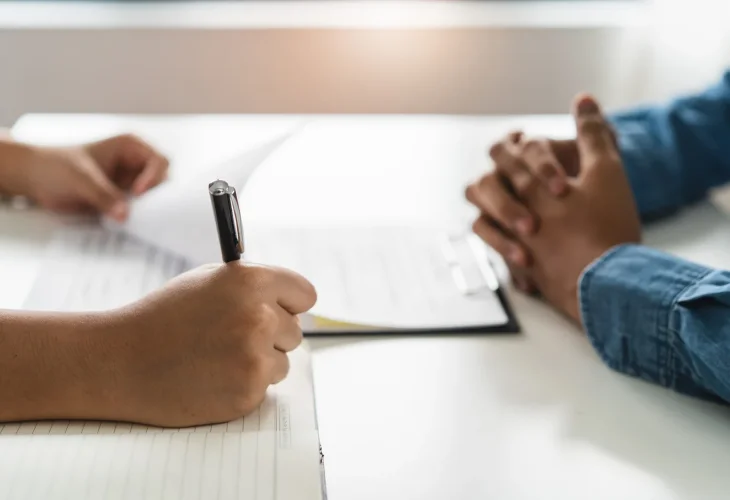Personality Development
How to Prepare for a Job Interview. 7 Body Language Tips That Will Make a Difference
A practical guide to improving first impressions and projecting confidence.
 (Photo: shutterstock)
(Photo: shutterstock)A job interview is not only a test of your professional abilities, but an opportunity to demonstrate your self-confidence, professionalism, and interpersonal chemistry. Studies show that an important part of the first impression we form relies on non-verbal elements, highlighting the importance of body language.
1. Entering the Interview: First Impressions Begin at the Door
First impressions are created from the very first second you enter the room. It's important to enter with confidence:
Upright Posture: Keep your back straight and shoulders relaxed.
Friendly Smile: A light and healthy smile creates a pleasant atmosphere and indicates self-confidence.
2. Maintaining Eye Contact
Good eye contact is a key component in creating a connection with the interviewer.
How to do it right? Look directly at the interviewer, but do not stare in a way that feels intimidating. Occasionally glance at the table or documents to maintain a natural feel.
What to avoid? Avoid a disconnected gaze or frequent eye-darting, which may be interpreted as disinterest or lack of confidence.
3. Appropriate Facial Expressions
A positive and engaging facial expression shows willingness and attentiveness.
Smile accordingly: Smile when appropriate, especially when discussing successes or hearing something interesting from the interviewer.
Relaxed Lips: Tensed or rigid lips may convey stress or discomfort.
4. Proper Use of Hands
Your gestures can either add to or detract from the message you are conveying.
Place your hands comfortably: On the table or on your knees.
Avoid nervous gestures: Such as finger snapping, touching your hair, or adjusting glasses.
Moderate use of gestures: Measured hand movements can emphasize your points.
5. Sitting with Confidence
The way you sit can greatly affect the impression you make.
Sit upright: Straight back and feet firmly on the ground.
Avoid rocking: A stable sitting position conveys calmness and self-confidence.
Maintain openness: Don't cross your arms defensively, as this might be perceived as being guarded.
6. Active Listening
Body language is not only about what you project but also how you receive information from the interviewer.
Light nodding: Nod occasionally to show you are listening.
Avoid distractions: Maintain eye contact and don't fidget with objects or your phone.
7. Graceful Exit from the Interview
Ending the interview is as important as the beginning.
Stand upright: When taking leave of the interviewer, maintain the same respectful posture.
Pleasant smile: Leave the room with a smile and a sense of confidence.
Through awareness and proper use of body language, you can convey confidence, professionalism, and openness that leave a positive impression during job interviews. It's important to practice in advance, feel comfortable, and of course remember that beyond the techniques and advice, prayer and trust in Hashem are of utmost importance.

